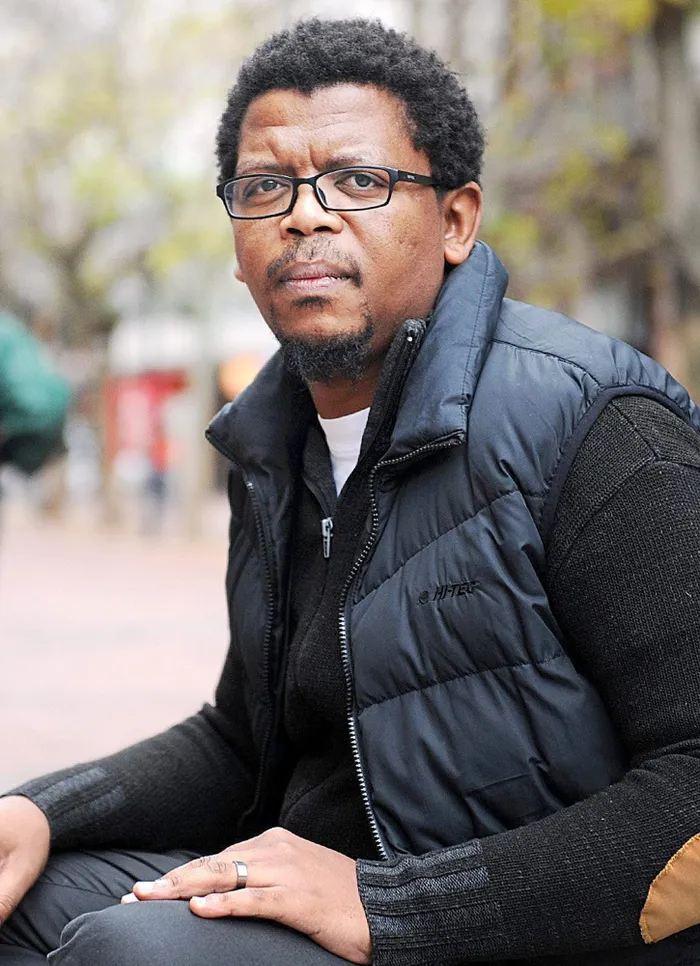Calata calls for justice as Ramaphosa announces inquiry into apartheid crimes

Journalist Lukhanyo Calata has made it his life’s duty to pursue justice for his father and the others.
Image: African News Agency archives
Veteran journalist Lukhanyo Calata, the son of Fort Calata, one of four anti-apartheid activists from Cradock, assassinated by the government in 1985, welcomed the establishment of a judicial commission of inquiry to investigate whether attempts were made to obstruct investigations or prosecution of apartheid-era crimes.
The announcement of the commission of inquiry was made on Wednesday by the office of President Cyril Ramaphosa.
This comes after Calata together with other families alongside the Foundation for Human Rights (FHR) brought a legal challenge before the North Gauteng High Court in Pretoria for gross human rights violations under apartheid.
Speaking to IOL, Calata said as families, they were pleased that Ramaphosa finally announced the decision to establish a commission of inquiry.
"Now he needs to urgently announce the terms of reference, the judge to preside over it as well as the start date. As the families, we look forward to the hearings and finding out the truth around who in the ANC administrations interfered with the work of the NPA to prevent the prosecutions of our fathers’ killers," he said.
Calata said this was a step towards justice and closure.
"Their dark and dastardly deeds must be brought into light. This is yet another crucial step to help the long-suffering families on their journey towards truth, justice, and closure."
In their court application, they seek an order condemning the conduct of current government officials, including President Ramaphosa, Justice and Constitutional Development Minister Mmamoloko Kubayi, Police Minister Senzo Mchunu, National Director of Public Prosecutions Shamila Batohi, and SAPS National Commissioner Fannie Masemola.
They alleged that these officials have unlawfully refrained from, or obstructed investigations and prosecutions of apartheid-era crimes.
In the statement, the Presidency acknowledged the persistence of allegations that previous administrations improperly influenced or delayed these investigations.
The statement emphasised President Ramaphosa’s commitment to uncovering the truth.
“Through this Commission, President Ramaphosa is determined to establish the facts and conclude the matter.
“The establishment of this Commission follows extensive settlement discussions involving the government, the families of victims, and other stakeholders,” read the statement.
The Presidency explained that these discussions culminated in a joint agreement to create the inquiry, which aims to shed light on the delays and obstacles that have hampered justice for apartheid-era crimes.
Scope of the Commission and Outstanding Matters
While the parties agreed to form the commission, the Presidency said some issues remain unresolved.
Notably, the Presidency disclosed that there is disagreement over the government’s liability for actions deemed unlawful, including claims for constitutional damages and declarations of rights violations.
The Presidency stated that these matters would be addressed through the inquiry’s terms of reference.
“The government has maintained that these outstanding matters would be most appropriately addressed through the Commission of Inquiry and will therefore be included in the Commission’s terms of reference.”
President Ramaphosa has reiterated his dedication to providing closure for victims’ families, emphasising that a comprehensive inquiry offers the best opportunity to establish the truth and determine appropriate remedies.
sinenhlanhla.masilela@iol.co.za
Weekend Argus
Related Topics: